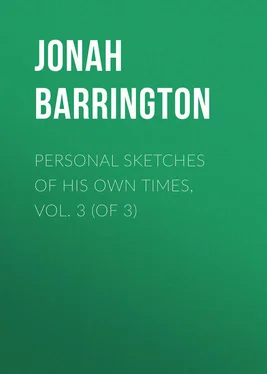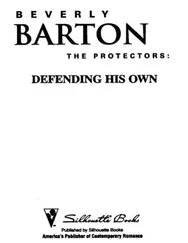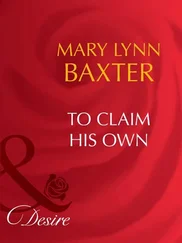Jonah Barrington - Personal Sketches of His Own Times, Vol. 3 (of 3)
Здесь есть возможность читать онлайн «Jonah Barrington - Personal Sketches of His Own Times, Vol. 3 (of 3)» — ознакомительный отрывок электронной книги совершенно бесплатно, а после прочтения отрывка купить полную версию. В некоторых случаях можно слушать аудио, скачать через торрент в формате fb2 и присутствует краткое содержание. Жанр: foreign_antique, foreign_prose, на английском языке. Описание произведения, (предисловие) а так же отзывы посетителей доступны на портале библиотеки ЛибКат.
- Название:Personal Sketches of His Own Times, Vol. 3 (of 3)
- Автор:
- Жанр:
- Год:неизвестен
- ISBN:нет данных
- Рейтинг книги:4 / 5. Голосов: 1
-
Избранное:Добавить в избранное
- Отзывы:
-
Ваша оценка:
- 80
- 1
- 2
- 3
- 4
- 5
Personal Sketches of His Own Times, Vol. 3 (of 3): краткое содержание, описание и аннотация
Предлагаем к чтению аннотацию, описание, краткое содержание или предисловие (зависит от того, что написал сам автор книги «Personal Sketches of His Own Times, Vol. 3 (of 3)»). Если вы не нашли необходимую информацию о книге — напишите в комментариях, мы постараемся отыскать её.
Personal Sketches of His Own Times, Vol. 3 (of 3) — читать онлайн ознакомительный отрывок
Ниже представлен текст книги, разбитый по страницам. Система сохранения места последней прочитанной страницы, позволяет с удобством читать онлайн бесплатно книгу «Personal Sketches of His Own Times, Vol. 3 (of 3)», без необходимости каждый раз заново искать на чём Вы остановились. Поставьте закладку, и сможете в любой момент перейти на страницу, на которой закончили чтение.
Интервал:
Закладка:
Larry Butler was one of the oldest and most indispensable attachés of our family. Though nobody remembered him a boy , he was as handy, as fresh, and as rational , perhaps more so, than half a century before. Short, broad, and bow-legged, bone and muscle kept his body together – for flesh was absent. His face, once extremely handsome, still retained its youthful colouring – though broken and divided: his sharp eye began to exhibit the dimness of age: the long white hair had deserted his high forehead, but fell, in no scanty locks, down each side of his animated countenance. He is before my eye at this moment – too interesting, and, at the same time, odd a figure ever to be forgotten.
I had a great respect for old Butler: he was very passionate, but universally licensed: he could walk any distance, and always carried in his hand a massive firing-iron. I have thus particularly described the old man, as being one of the most curious characters of his class I ever met in Ireland.
Larry soon showed signs of relapsing into slumber; but Jug, fearing it was a fox’s sleep (an old trick of his), did not recommence her philippic on the farriers, but went on in her simple praise of the collough practice. “Sure,” said she, “God never sent any disorder into a country that he did not likewise send something to cure it with.”
“Why, certainly, Jug,” said I, “it would be rather bad treatment if we had no cures in the country.”
“Ough! that saying is like your dear father,” said she, “and your grandfather before you, and your great-grandfather who was before him agin. Moreover,” pursued Jug, “God planted our cures in the fields because there was no pothecaries.”
“Very true, Jug,” said I.
“Well, then, Master Jonah,” resumed she, “if God or the Virgin, and I’m sure I can’t say which of them, planted the cures, sure they must have made people who knew how to pick them up in the fields, or what good is their growing there?”
“There’s no gainsaying that, Jug,” gravely observed I.
“Well, then, it was to the colloughs, sure enough, God gave the knowledge of picking the cures up – because he knew well that they were owld and helpless, and that it would be a charity to employ them. When once they learned the herbs, they were welcome every where; and there was not one man died in his bed (the people say) in owld times for twenty now-a-days.”
“Of that there is no doubt, Jug,” said I, “though there may be other reasons for it.”
“Ough! God bless you agin, avourneen! any how,” said Jug. “Well, then, they say it was Crummell and his troopers, bad luck to their sowls, the murdering villains! that brought the first farriers (and no better luck to them !) to Ireland, and the colloughs were kilt with the hunger. The craturs, as the owld people tell, eat grass like the beasts when the cows were all kilt by the troopers and farriers – avourneen, avourneen!”
Modern practitioners will perceive, by these two specimens of our ancient doctors , that the state of medicine in Ireland was totally different from that in Italy. Surgery being likewise a branch of the healing art, no doubt also differed in the two countries, in a similar degree. I shall therefore give a few instances of both medico-surgical and surgico-medical practice fifty years ago in Ireland; and if my talented friend, Lady Morgan, will be so good as to inquire, she will find, that though she has left medicine so entirely to her lord, she may get an admirable doctor or two to introduce into her next Irish imaginations – which I hope will be soon forthcoming – certainly not sooner than agreeable and welcome.
I must here notice a revolution; namely, that of late, since farriers have got a “step in the peerage,” and are made commissioned officers in the army, they think it proper to refine their pharmacopeia so as to render it more congenial to their new rank and station, and some horses are now not only theoretically but practically placed on more than a level with the persons who mount them.
The practice of horse medicine is indeed so completely revolutionised, that gas, steam, and the chemistry of Sir Humphrey Davy, are resorted to for the morbid affections of that animal in common with those of a nobleman. The horse, now, regularly takes his hot bath like my lord and lady, James’ powders, refined liquorice, musk, calomel, and laudanum, with the most “elegant extracts” and delicate infusions. As if Gulliver were a prophet, he literally described, in the reign of Queen Anne, both the English horse and the Irish peasant as they exist at the present moment. If the lodging, clothing, cleaning, food, medicine, and attendance of the modern Hoynhymm, be contrasted with the pig-sty, rags, filth, neglect, and hunger of the Yahoo, it must convince any honest neutral that Swift (that greatest of Irishmen) did not overcharge his satire. The sum lavished upon the care of one Hoynhymm for a single day , with little or nothing to do, is more (exclusive of the farrier) than is now paid to five Irish Yahoos for twelve hours’ hard labour, with to feed, clothe, lodge, and nourish themselves , and probably five wives and twenty or thirty children, for the same period, into the bargain.
A few very curious cases may elucidate our ancient practice of cure – a practice, I believe, never even heard of in any other part of Europe. The bite of a mad dog was to the Irish peasantry of all things the most puzzling and terrific; and I am sure I can scarcely guess what Doctor Morgan will think of my veracity when I state the two modes by which that horrible mania was neutralised or finally put an end to.
When the bite of a dog took place, every effort was made to kill the beast, and if they succeeded, it was never inquired whether he actually was , or (as the colloughs used to say) pretended to be mad: his liver was immediately taken out, dried by the fire till quite hard, then reduced to powder, and given in frequent doses with a draught of holy or blessed water, to the patient for seven days. If it happened that the saliva did not penetrate the sufferer’s clothes, or if the dog was not actually mad, it was then considered that the patient was cured by drinking the dog’s liver and holy water; – and if it so happened that the bite set him barking, then the priest and farrier told them it was the will of God that he should bark, and they were contented either to let him die at his leisure, or send him to heaven a little sooner than was absolutely necessary.
The herbs of the colloughs were sometimes successfully resorted to; whether accidental or actual preventives or antidotes, it is not easy to determine: but when I detail the ulterior remedy to cure the hydrophobia in Ireland, or at least to render it perfectly innoxious , I am well aware that I shall stand a good chance of being honoured by the periodicals with the appellation of a “bouncer,” as on occasion of the former volumes: but the ensuing case, as I can personally vouch for the fact, I may surely give with tolerable confidence.
KILLING WITH KINDNESS
Illustration of the Irish horror of hydrophobia – Thomas Palmer, of Rushhall, Esquire, magistrate and land-agent, &c. – A substantial bill of fare – Dan Dempsey, of the Pike, is bitten by a mad dog – Application to the magistrate for legal permission to relieve him of his sufferings – Mode of relief proposed – Swearing scholars – Permission obtained – Dan regularly smothered, by way both of cure and preventive – Fate of Mr. Palmer himself – Allen Kelly, of Portarlington – “New Way to Pay Old Debts.”
Читать дальшеИнтервал:
Закладка:
Похожие книги на «Personal Sketches of His Own Times, Vol. 3 (of 3)»
Представляем Вашему вниманию похожие книги на «Personal Sketches of His Own Times, Vol. 3 (of 3)» списком для выбора. Мы отобрали схожую по названию и смыслу литературу в надежде предоставить читателям больше вариантов отыскать новые, интересные, ещё непрочитанные произведения.
Обсуждение, отзывы о книге «Personal Sketches of His Own Times, Vol. 3 (of 3)» и просто собственные мнения читателей. Оставьте ваши комментарии, напишите, что Вы думаете о произведении, его смысле или главных героях. Укажите что конкретно понравилось, а что нет, и почему Вы так считаете.












